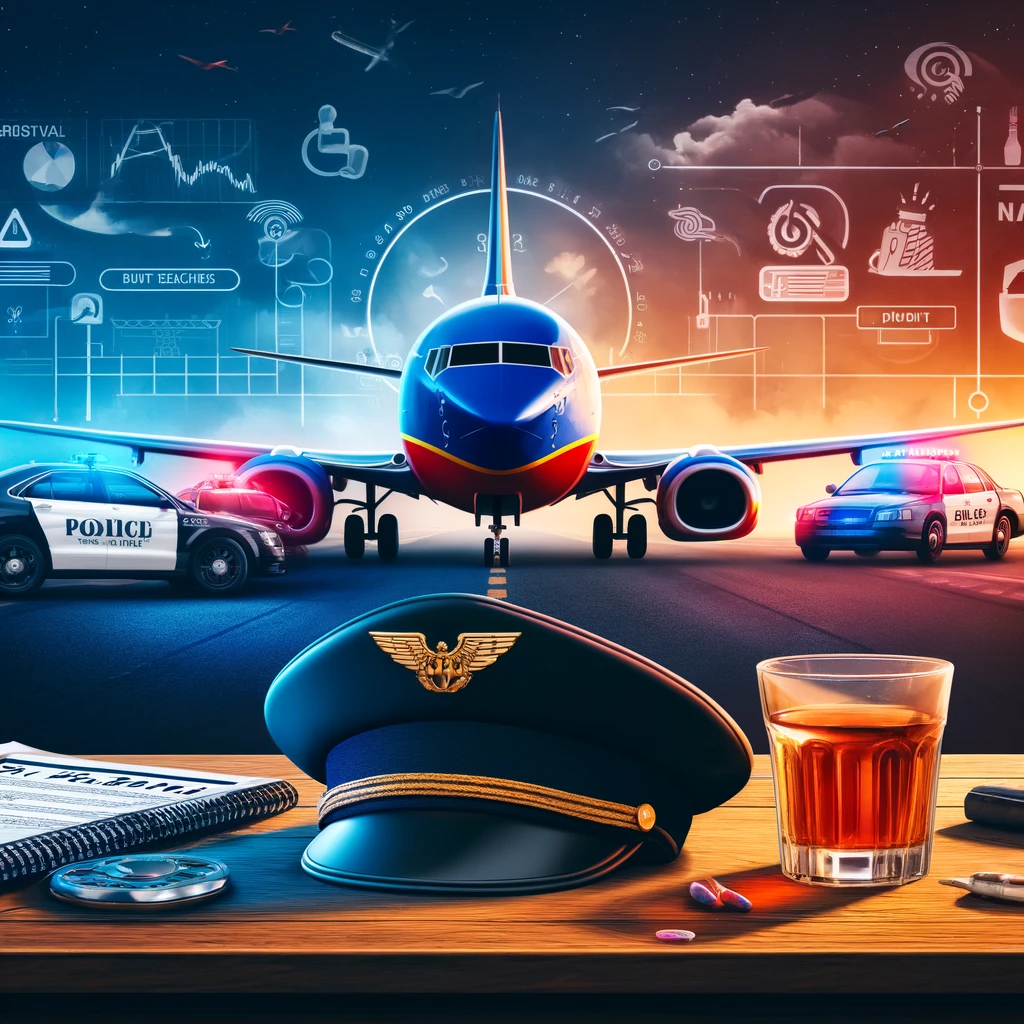Southwest Airlines Pilot Arrested for DUI Before Departure
In a concerning incident that highlights the critical importance of safety and responsibility in aviation, a Southwest Airlines pilot was arrested for **Driving Under the Influence (DUI)** just before a scheduled flight. This unexpected event has raised questions about airline safety protocols and has sparked a broader conversation about ensuring the well-being of passengers and crew. Let’s delve into the details of this incident and explore the implications for the airline industry.
The Incident Unfolded
As passengers prepared for their journey at the airport, authorities intervened to arrest the pilot in question, marking a rare but serious breach in airline operations. The arrest occurred after routine checks revealed the pilot was under the influence of alcohol, which prompted immediate action from law enforcement and airline officials.
While such incidents are not typical in the aviation industry, they underscore the ongoing need for **vigilant monitoring and stringent enforcement** of safety standards. The proactive approach taken by the authorities is commendable, as it prevented what could have been a catastrophic incident.
The Role of Safety Protocols
The aviation industry is built on a foundation of rigorous safety protocols designed to ensure the safe transport of passengers and crew worldwide. For pilots, this includes regular health checks, stringent adherence to rules against substance abuse, and compliance with operational standards.
- **Routine Health Checks**: Regular medical examinations to ensure pilots are fit to fly.
- **Substance Abuse Policies**: Strict regulations and zero-tolerance policies regarding alcohol and drug use.
- **Continuous Monitoring**: Random testing and inspections to ensure compliance with safety standards.
This incident underscores the necessity of remaining vigilant, as even one oversight can potentially lead to disastrous consequences.
Southwest Airlines Response
In the wake of this incident, Southwest Airlines has reiterated its commitment to safety and transparency. The airline has emphasized the importance of its zero-tolerance policy on substance abuse and its dedication to maintaining the highest standards of integrity within its operational procedures.
The airline released an official statement expressing relief that the situation was addressed before any harm could come to passengers and emphasized its ongoing efforts to ensure that such incidents are prevented in the future. The airline also mentioned additional measures they plan to implement to bolster their existing safety protocols.
Future Preventive Measures
To prevent similar incidents, Southwest Airlines plans to enhance its existing measures by:
- **Increasing Random Testing**: Expanding the frequency and scope of random alcohol and drug tests for flight personnel.
- **Enhancing Training Programs**: Implementing rigorous training sessions focused on the dangers of substance abuse.
- **Strengthening Support Systems**: Providing greater support and resources for pilots and crew members to ensure their well-being and compliance with safety standards.
These measures are intended to reaffirm their commitment to safety and provide passengers with confidence in their services.
Impact on Aviation Safety Norms
This incident at Southwest Airlines has undoubtedly attracted attention within the aviation community, prompting discussions among industry stakeholders regarding safety norms and protocols. It serves as a somber reminder of the potential risks involved if even a single element of the safety process falters.
Aviation experts have advocated for more rigorous oversight and the advancement of **comprehensive safety management systems**. These include:
- **Enhanced Oversight**: Continuous oversight by regulatory bodies to ensure compliance with industry standards.
- **Advancements in Technology**: Leveraging technology to aid in early detection and prevention of impairment among pilots.
- **Collaboration and Sharing of Best Practices**: Encouraging airlines to collaborate and share best practices in safety measures and protocols.
The dissemination of these practices across the industry will likely reinforce the robust safety culture that aviation is known for, ensuring passengers remain safe now and in the future.
Conclusion
The arrest of a Southwest Airlines pilot for DUI before departure serves as an important reminder of the critical need for diligence and adherence to safety protocols in aviation. The **immediate actions** taken by the authorities and the airline’s commitment to improving safety measures further emphasize that passenger and crew safety remains paramount.
As the aviation industry takes lessons from this event, passengers can continue to rely on the stringent safety norms that airlines employ to protect everyone onboard. While this incident highlights an area for improvement, it also showcases the **proactive measures** in place to prevent potential hazards, ensuring that such incidents remain the exception, not the rule, in air travel










